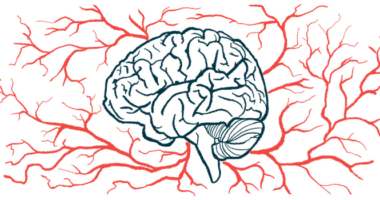Casgevy improved quality of life for severe SCD patients in trial
'Treatment has transformed lives,' researcher says after follow-ups in clinic

People with severe sickle cell disease (SCD) have reported significant improvements in their quality of life after receiving the approved gene-editing therapy Casgevy (exagamglogene autotemcel).
That’s according to a new analysis of data from patients involved in a clinical trial that had tested the SCD treatment in individuals who had experienced episodes of severe pain, known as vaso-occlusive crises (VOCs), in the two years before enrolling in the study.
“Clinically-meaningful improvements in [health-related quality of life] and reductions in pain … [were] observed in both adults and adolescents” with SCD, the researchers now wrote.
Titled “Improvements in Health-Related Quality of Life in Patients with Severe Sickle Cell Disease After Exagamglogene Autotemcel,” the new study was published in Blood Advances, a journal of American Society of Hemotology (ASH). The work was funded by Vertex Pharmaceuticals, which developed Casgevy alongside CRISPR Therapeutics.
Haydar Frangoul, MD, medical director of pediatric hematology/oncology at Sarah Cannon Research Institute in Tennessee and the study’s lead author, said continued benefits from Casgevy treatment have been seen since the trial’s end.
“This treatment has transformed lives and its impact was evident as we followed up with patients in our clinic,” Frangoul said in an ASH press release. “Patients are returning to school, back to work, and overall spending more time with their families and less time in the hospital.”
According to the scientist, this is “a powerful example of how clinical research drives real-world impact.”
In SCD, genetic mutations lead to the production of an abnormal form of hemoglobin, the protein used by red blood cells to carry oxygen through the bloodstream. The mutated hemoglobin tends to clump up in red blood cells, deforming them and making them prone to getting stuck inside blood vessels. This can block blood flow and lead to painful VOCs.
A gene-editing therapy, Casgevy is designed to increase the production of fetal hemoglobin — an alternative version of the protein that’s usually only made during early fetal development — to compensate for the mutated adult hemoglobin. Treatment entails collecting blood stem cells from an individual’s bone marrow, modifying them in a lab to boost fetal hemoglobin production, and then returning them to the patient via a stem cell transplant.
Researchers analyze quality of life outcomes from CLIMB-121 participants
Casgevy is approved in the U.S. to treat SCD patients ages 12 and older who are experiencing recurrent VOCs. It is also conditionally approved for similar indications in other countries and regions, including the U.K. and the European Union.
Approvals of Casgevy were based mainly on data from the now-completed Phase 2/3 CLIMB-121 clinical trial (NCT03745287), conducted in Europe and North America. Those data showed that nearly all participants were free from severe VOCs for at least one year in the first two years after receiving Casgevy. Participants who completed the initial trial had the choice to continue into an extension study called CLIMB-131 (NCT04208529), which is monitoring the therapy’s long-term safety and efficacy outcomes.
In this study, the researchers analyzed quality of life outcomes from 42 patients — 30 adults and 12 adolescents — who had received Casgevy in CLIMB-121. All had been followed for at least 16 months after receiving treatment; the median follow-up time was nearly three years. Among these patients, 34 completed CLIMB-121 and enrolled in CLIMB-131.
In the adults, the main quality of life measure looked at was a standardized assessment called the EuroQol Quality of Life Scale-5 dimensions-5 levels of severity (EQ-5D-5L). Prior to Casgevy treatment, mean EQ-5D-5L scores were significantly lower among these SCD patients relative to norms for the general population. But within about six months of receiving Casgevy, patient mean scores improved to about the same as population norms and remained stable until the latest available follow-up.
Other standardized measures of adult life quality, such as the Adult Sickle Cell Quality of Life Measurement Information System (ASCQ-Me), likewise showed notable improvements following Casgevy treatment, with clinically meaningful gains seen across a variety of subscales related to physical function, pain, mental health, and other specific aspects of life quality.
Costly Casgevey called ‘a worthwhile investment’ for patients
Similar improvements in life quality scores were reported among adolescents in the study — though different tools specifically designed to evaluate quality of life in young people were used for these patients.
“Following [Casgevy] infusion, there were clinically meaningful improvements in all [patient-reported outcome] measures assessed in both adult and adolescent participants, including improvements in overall health and general well-being, as well as specific improvements in physical, emotional, social functioning well-being, and pain experience,” the researchers wrote.
In addition to SCD, Casgevy is also approved to treat certain individuals with another hemoglobin-related disorder called transfusion-dependent beta thalassemia (TDT). A separate study published in Blood Advances indicated that people with severe TDT also tended to report improvements in life quality following Casgevy treatment.
Most research on new therapies like [Casgevy] tends to focus on improvements in laboratory values, but what is most important to patients with severe SCD … [is] improvements in their daily life. … Although [Casgevy] is a complex and costly treatment, the significant improvements in quality of life shown in these studies make it a worthwhile investment.
Josu de la Fuente, PhD, the lead author of the TDT study, noted that “this is the first time we’ve been able to measure improvements in quality of life after treatment with gene editing technology.” A professor at Imperial College London, de la Fuente also serves as the director of the pediatric blood and marrow transplant program.
“Most research on new therapies like [Casgevy] tends to focus on improvements in laboratory values, but what is most important to patients with severe SCD or transfusion-dependent beta thalassemia [is] improvements in their daily life,” de la Fuente said.
The process of getting treatment with Casgevy is lengthy and carries notable risks, and the therapy has a hefty price tag. According to de la Fuente, the new life quality data suggest that these complexities and costs may be worth it, at least for certain individuals.
“Although [Casgevy] is a complex and costly treatment, the significant improvements in quality of life shown in these studies make it a worthwhile investment, especially for younger patients, who showed marked improvements,” de la Fuente said. “These patients will now have the opportunity [to] live normal, high-quality lives and contribute to their families, workplaces, and society.”








